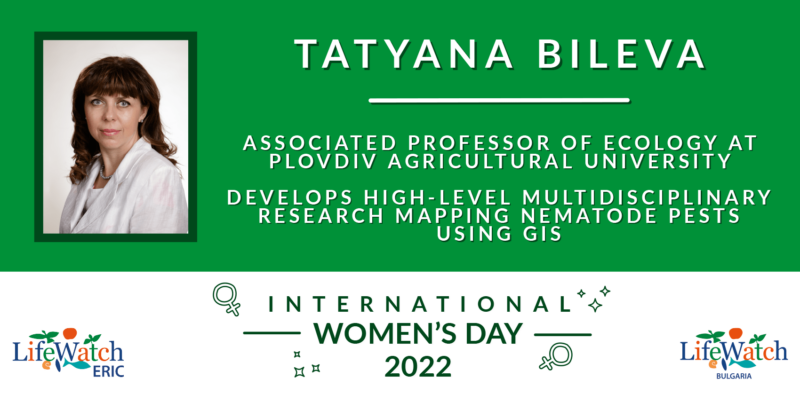
For International Women’s Day 2022, we at LifeWatch ERIC are putting eight scientists in the spotlight. Each of the LifeWatch ERIC member states has proposed a figure who has broken boundaries over the course of her lifetime, and is an inspiration to younger generations looking to pursue a career in STEM.
As we explored in the podcast we recorded for The International Day of Women and Girls in Science, women are still underrepresented in various scientific fields, such as engineering, computer science and AI. Additionally, scientific research in general is not only unbalanced in terms of composition (33% female) but also in terms of hierarchy, with only 12% of national science academy members being women, who are disproportionately overlooked when it comes to promotion and grants.
The women at the centre of our campaign are very diverse, hailing from a range of countries and time periods, but they all have one thing in common: overcoming the odds in order to contribute to scientific improvement. We want to draw attention to just a fraction of the women who have defied the cultural barriers pitted against them to bring good to the world, and bring recognition where they might have been overlooked.
Born in the southern Bulgarian city of Plovdiv, Tatyana Bileva is an Associate Professor of Ecology at the city’s Agricultural University, where she has previously held the crucial role of Quality Manager. She is a bright researcher with long-term experience of a wide range of plant parasitic nematodes and soil ecology, and has published over 60 scientific publications and 2 books in the fields of Biodiversity, Taxonomy and Zoology.
Bileva has been involved in several multidisciplinary research works regarding the mapping of multiple nematode pests through GIS applications, and other themes in her research include biodiversity, environmental conflicts, ecosystem services and sustainable management. Her expertise allows for the development of high-level research work, and has worked on many local and international projects. Her enthusiasm and gentle personality is not only conducive to establishing positive professional links, but makes her an inspiration for students wishing to pursue scientific work and career.
She was recently involved in STACCATO, Sustaining Agricultural Change through Ecological Engineering and Optimal use of Natural Resources, a BiodivERsA-funded EU project which focused on the analysis and evaluation of Ecosystem Services (ESS), and their sensitivity to land use patterns in agriculturally dominated landscapes. According to Eurostat, Bileva lives in one of just the four EU countries where the number of female scientists outweighs male scientists (52%).